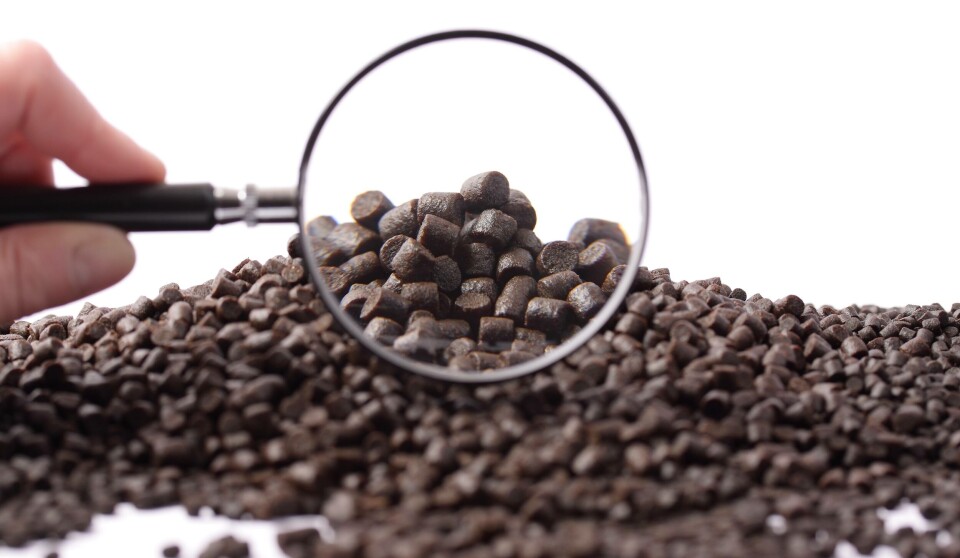
Feed ingredient risk assessment tool launched
Initiative aimed at countering ‘surprising amount of unknown information in supply chains’
A first-of-its-kind environmental, social, governance (ESG) risk assessment tool for feed ingredients has been launched by the Global Salmon Initiative (GSI) in partnership with World Wildlife Fund (WWF).
GSI, a leadership initiative by global farmed salmon producers, said the tool will improve visibility into supply chains, enabling stakeholders to better identify and address possible ESG risks.
The tool was developed to support the salmon farming sector, but the wider animal protein production sectors, including livestock, may also benefit from its use, said GSI. It provides a consistent framework for farming companies to engage with their feed suppliers to get a holistic overview of possible ESG risks that could include biodiversity loss, climate change, resource use, environmental footprint, health and welfare, nutrition, human rights, and governance.
With this knowledge, companies can make more informed sourcing decisions.

By developing a common tool producers can all ask the same questions of the supply chain which will streamline requests and improve the level of traceability
Tor Eirik Homme
A common tool
“We know we need to improve the level of transparency and traceability in our supply chains, not only for our own knowledge but also to provide feedback and assurances to our stakeholders whether customers, regulators, communities or long-term investors that we are sourcing from responsible and sustainable sources,” said Tor Eirik Homme, feed and nutrition director for Grieg Seafood.
“By developing a common tool producers can all ask the same questions of the supply chain which will streamline requests and improve the level of traceability, ultimately supporting accelerated improvements in the sustainability of the ingredients being used for feed.”
Daniel Miller, aquaculture lead specialist at WWF, said feed ingredient sourcing remains one of the main sustainability challenges in salmon farming, and food production more broadly.
“The surprising amount of unknown information in feed-ingredient supply chains leaves the sector open to unintentional risks and vulnerabilities - even for companies prioritising sustainable, ethical production. With this tool, GSI members are taking a proactive approach to address these risks and identify opportunities to improve the supply chain,” added Miller.
“This tool isn’t designed only for farmed salmon, or even just aquaculture, we see it having critical impact across the animal protein production sectors, and even pet feed, that all share many of the same supply chains and risks. While GSI has taken the first step to develop and trial the tool, we will now be working with other WWF partners to expand its use.”
Diverse supply chains
Jorge Diaz Salinas, sustainability manager for aquafeed company Skretting said sourcing feed ingredients from diverse supply chains made it challenging to identify and mitigate all the current and potential ESG risks of the company’s global operations.
“We’ve made significant progress over the past few years in addressing many of these risks, but we have more work to do and our pace needs to accelerate,” said Salinas. “We support the implementation of the ESG tool because it will help us better identify what we know and what we don’t know about the impacts of certain ingredients, and in addressing these concerns, we will increase the transparency in our sourcing and ultimately improve our performance.”
Certification organisation the Aquaculture Stewardship Council (ASC) has also reviewed the tool and intends to incorporate it as one of its due diligence mechanisms to be part of the ASC Feed Standard certification process.
Business case
In addition to the tool, WWF in collaboration with GSI and Grieg Seafood, released a business case, Feed of the Future: Transparent and Traceable, which outlines the challenges inherent in feed production, the development of the tool, and Grieg Seafood’s experience applying it to its supply chain.
All data collected as part of the tool is confidential and only shared between feed supplier and farming company.
GSI member companies are AquaChile; Australis Seafoods; Blumar; Salmones Camanchaca; Multiexport Foods; Salmones Austral; Salmones Aysen; and Ventisqueros (all Chile); Grieg Seafood; Nova Sea (both Norway); Huon Aquaculture; Tassal (both Australia); and Scotland and Faroes farmer Bakkafrost.






















































